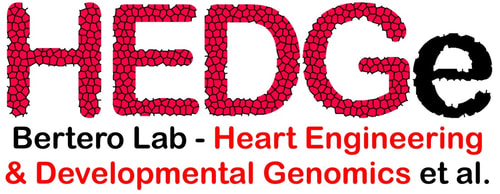We integrate gene editing, synthetic biology, and stem cell technologies to generate advanced methods to precisely control genome structure and function in human in vitro models of development and disease
Ongoing Projects
We are developing a second generation inducible shRNA expression system to perform pooled functional screenings with single-cell RNA-seq readouts
In collaboration with the Zalatan lab, we are developing novel methods based on inducible CRISPR/Cas9 and engineered sgRNA scaffolds for:
We are developing a second generation inducible shRNA expression system to perform pooled functional screenings with single-cell RNA-seq readouts
In collaboration with the Zalatan lab, we are developing novel methods based on inducible CRISPR/Cas9 and engineered sgRNA scaffolds for:
- Repositioning of gene loci in specific nuclear subcompartments (i.e. nuclear lamina)
- Orthogonal repression or activation of gene expression (i.e. CRISPRi and CRISPRa)
Earlier Contributions
We combined an optimized tetracycline-inducible shRNA/sgRNA expression method with gene targeting into safe genomic harbors and the CRISPR/Cas9 technology to develop OPTimized inducible KnockDown and KnockOut (OPTiKD and OPTiKO) platforms. Showcasing the potential of such approaches, we utilized the OPTiKO method to test the efficiency and specificity of sgRNAs against POU5F1/OCT4. The best sgRNA was subsequently used by Dr. Kathy Niakan’s lab for a pioneering CRISPR/Cas9 gene editing experiment in human embryos aimed at understanding early cell fate decisions.
We also co-developed an OPTimized inducible OvereXpression (OPTiOX) platform based on gene targeting into safe genomic harbor of an optimized doxycycline-inducible cDNA methodology. The potential of this technology was then exemplified by forcing expression of developmental transcription factors in hPSCs, which allowed the efficient derivation of several mature cell types including skeletal muscle, neurons, and oligodendrocytes.
Our patent based on OPTiKD/KO/OX technologies has been licensed to bit.bio ltd, a cell engineering and manufacturing company based in Cambridge, UK.
